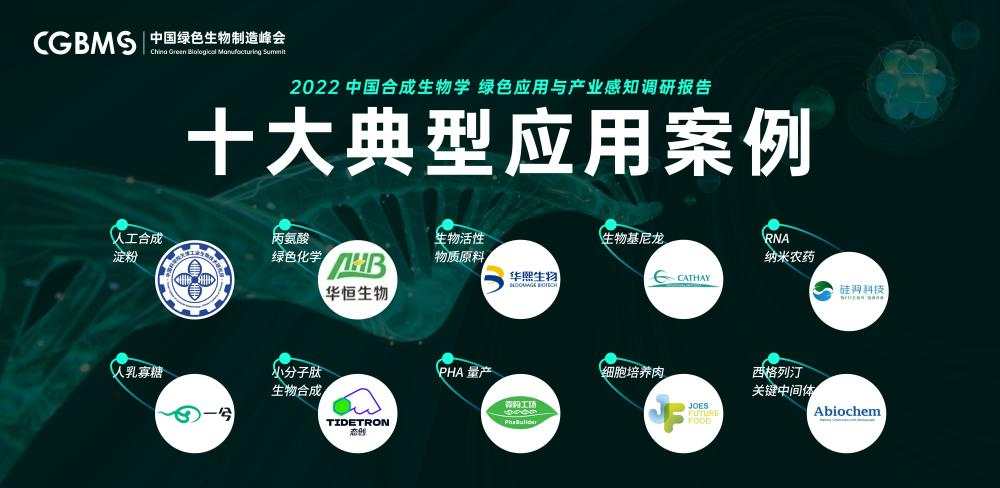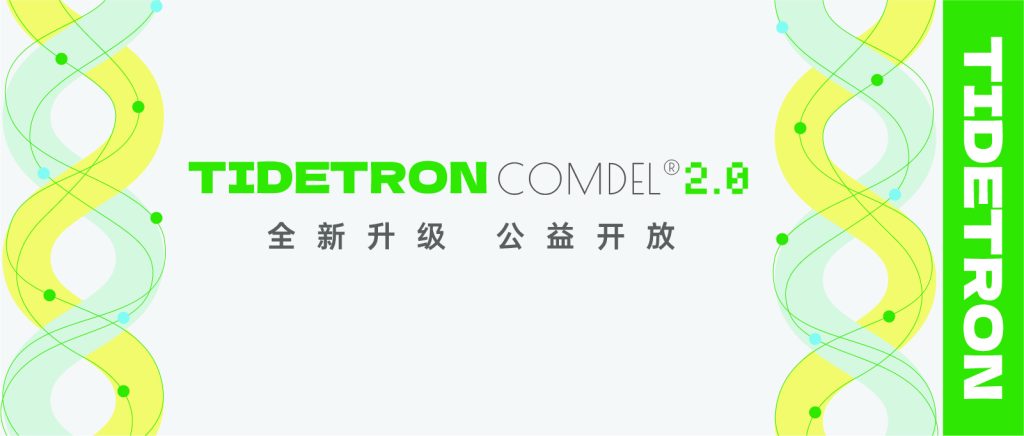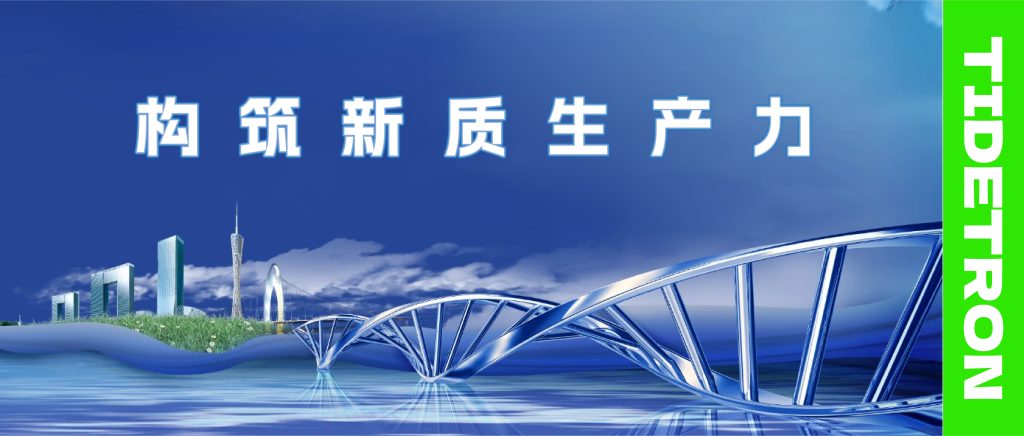On March 28, the Science and Technology Daily and the China Society of Biotechnology jointly released the "2022 China Green Application and Industry Perception Research Report on Synthetic Biology."

The report comprehensively reviews the current status of synthetic biology development in China. It conducts surveys of the public and industry professionals to assess their knowledge, attention, acceptance, and expectations of synthetic biology. The report also qualitatively and analytically analyzes the technological and product layouts of a hundred artificial biology companies and, based on the research results, summarizes the challenges and opportunities for industry development while providing substantive recommendations. Finally, the report selects the top ten typical applications of synthetic biology.
Industry: Technological and policy integration drive the development of synthetic biology
Synthetic biology, hailed as the third wave of the biotechnology revolution, is now widely used in healthcare, green energy, cosmetics, biomaterials, and food consumption, demonstrating strong industrial application potential. According to McKinsey data, by 2025, the economic value of synthetic biology and bio-manufacturing is expected to reach $100 billion, and 60% of global material production could be achieved through bio-manufacturing.
In recent years, the costs of genetic sequencing, gene editing, and gene synthesis, the three underlying synthetic biology technologies, have been reduced. With the breakthrough development of new-generation information technology, synthetic biology has leveraged technologies such as big data processing and deep learning to achieve a faster design of chassis organisms, significantly lowering the threshold for establishing artificial biology companies.
Regarding policy support, synthetic biology has received the highest policy support in history as part of the "14th Five-Year Plan." According to the research team of the report, among the 31 provinces (autonomous regions, municipalities) in China (excluding Hong Kong, Macao, and Taiwan), 18 areas (cities) have included "synthetic biology" in their "14th Five-Year Plan." They have planned the development path of synthetic biology in terms of platform construction, technological breakthroughs, and industrial applications. In addition, China's "Dual Carbon" strategy has provided a favorable development environment for synthetic biology.
With the dual support of technology and policies, synthetic biology has witnessed the emergence of a group of industry newcomers and a continuous influx of startup companies. Youthfulness has become a prominent characteristic of the synthetic biology enterprise landscape. Additionally, the involvement of the industrial and investment sectors has accelerated the rapid growth of the number of startup companies. According to incomplete statistics, in 2022, the frequency and amount of investment and financing in the field of synthetic biology reached a new high in China, with at least 43 investment and financing activities, meaning that nearly every week, a company would receive new financing, with a total amount of 6.6 billion yuan, also a new record.
To express the development potential of synthetic biology companies in various regions, the research team introduced the "Synthetic Biology Potential Enterprises" index, which represents companies that have the potential to develop or are engaged in synthetic biology businesses. The research team believes that companies with "biotechnology" or "synthetic biology" mentioned in their business registrations are more likely to have the potential to develop synthetic biology. The research team compiled the number of potential companies in various regions, and the results showed that Guangdong, Shanghai, Shandong, and Jiangsu provinces and cities have the most potential enterprises.
Survey: 60% of respondents optimistic about the future development of synthetic biology
As synthetic biology experiences a "spring" of development, what is the public's attitude toward its progress? The research team surveyed thousands of participants to answer this question, investigating their awareness, attention, acceptance, and expectations regarding synthetic biology.
The survey results indicate that 60% of the respondents have a "limited understanding" of synthetic biology. Among the 1,237 participants, 521 individuals (42.12%) stated they had "little understanding," and 298 individuals (24.09%) claimed to have "no understanding at all." The combined percentage of these two groups reaches 66.21%, which the report categorizes as "limited understanding." The respondents' limited understanding of synthetic biology significantly influences their attitudes in the other three dimensions. Analyzing the data further reveals that the experience level is positively correlated with the participant's level of education, with 56.67% of doctoral respondents having a "basic understanding" or higher.
In terms of attention, the data shows that the public has a strong desire to know about synthetic biology, but their actual level of engagement could be more active. While 44.78% of the respondents express a willingness to learn or have a strong interest in synthetic biology, only 15.19% claim to "pay relatively frequent attention" or "pay regular attention," indicating a noticeable gap between intent and action.
Regarding acceptance, 53.6% of the respondents hold a "neutral" stance toward developing synthetic biology, surpassing the halfway mark. This data demonstrates broad public support for the application of synthetic biology. However, it also highlights the challenge of converting a substantial portion of the "neutral" group into a "supportive" stance, avoiding shifting towards opposition. Overall, the respondents with a deeper understanding of synthetic biology are more supportive of its applications. Nevertheless, there are exceptions, as 7.14% of respondents who claim to have a "thorough understanding" of synthetic biology choose to adopt an "opposed" position, a higher proportion than those with a "comparative understanding."
Regarding expectations, survey results reveal that 57.81% of respondents have a positive outlook on the future development of synthetic biology technology over the next decade, while only 10.59% express concerns.
Over 3,000 Patents Across Various Product Areas by Top 100 Enterprises
According to a research report, the team selected 100 active enterprises based on online popularity and corporate activity levels. They conducted a micro-level analysis focusing on the products and technologies of these enterprises.
The analysis results show that China's synthetic biology enterprises can be divided into three main categories. The first category consists of traditional chemical, energy, and pharmaceutical companies expanding into synthetic biology. The second category includes companies involved in genetic engineering, healthcare, and other related fields, experimenting with artificial biology applications on a smaller scale. The third category comprises newly established companies specializing in synthetic biology. These three types of companies follow different development paths and focus on various research areas, collectively shaping a diverse landscape in the synthetic biology industry.
The 100 enterprises surveyed possess over 3,000 patents, highlighting their emphasis on intellectual property rights. These patents cover various modules within synthetic biology, such as RNA editing and fermentation. In terms of products, the analysis reveals that driven by the policy of banning plastics, bio-based materials in the chemical industry have gained significant attention. Among the surveyed enterprises, 13 companies have positioned themselves in the field of bio-based degradable materials.
The application of synthetic biology in the food and nutrition sector has grown yearly. Edible microbial-synthesized proteins, erythritol, probiotics, human milk oligosaccharides, and cell-cultured meat have become focal points for synthetic biology enterprises.
Among the 100 enterprises, 12 are involved in the cosmetics and personal care sector, focusing on researching and producing various product ingredients such as hyaluronic acid, recombinant collagen, small molecule peptides, small molecule active collagen, and ginsenosides. Synthetic biology strives to address raw material supply challenges in the cosmetics and personal care industry.
In the medical field, 43 of the 100 synthetic biology enterprises surveyed have made significant investments, indicating it as a favored and highly anticipated industry.
The report highlights the impressive potential of emerging synthetic biology applications in the agricultural sector. Synthetic biology can improve agricultural productivity, crop improvement, cost reduction, and sustainable development, leading to agricultural production capacity and nutritional value breakthroughs. It will provide revolutionary solutions to global farming challenges and drive new dynamics and formats in cellular, low-carbon, and intelligent agriculture.
Challenges: Technical and Industrial Application Issues for Synthetic Biology to Address
The report points out that despite significant developments in synthetic biology disciplines and their application practices in the 21st century, numerous challenges remain regarding technology, industrial application, and the external environment, necessitating collaboration among industry, academia, and research communities.
Firstly, there are technical challenges. The report highlights two significant technical barriers: "the technological threshold of rational design of chassis strains" and "the gap between successful experimentation and successful large-scale production." Regarding the former, synthetic biology has long faced challenges in the characterization of mass-produced biological components and the predictive design of intracellular metabolic pathways. Regarding the latter, in the industrial-scale production process, synthetic biology still encounters issues such as unstable target product yield, genetic transformation, lack of functional modification methods and secretion channels, and complex purification and high purification costs.
Regarding industrial application challenges, the selection of products tests the team's technical capabilities and market understanding in the synthetic biology field. The report states that "product selection" implies choosing the industry and involves accurate judgment of future market conditions, public perception, policy trends, and consumer environments, encompassing "being able to develop, produce, and sell." In addition, the talent shortage is currently limiting the development of the synthetic biology industry.
Apart from these internal challenges, synthetic biology faces external challenges, such as ethical controversies, public perception, and policy issues. The report suggests that professionals in the synthetic biology field should take up historical responsibilities by ensuring safety in production. It also emphasizes the need for extensive public education efforts to gain more public support for industry development. Furthermore, policy coordination across multiple domains and industries is recommended to create a favorable policy environment for the synthetic biology industry.
Article source:http://k.sina.com.cn/article_7517400647_1c0126e4705903yyo6.html









